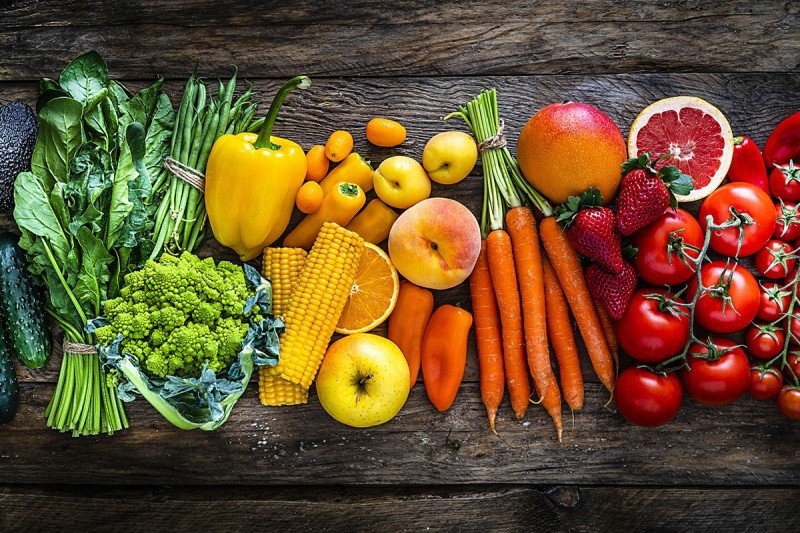
You may have read articles or seen products that claim to “boost” your immune system. But what does that mean — and is it even the right goal?
Contrary to popular belief, our bodies don’t have one singular immune system. The immune system is actually made up of many different organs, cells, and proteins that work together to keep infections at bay, says Cara Anselmo, a clinical dietitian nutritionist at Memorial Sloan Kettering Cancer Center. People receiving certain cancer treatments may have weakened immune systems, which means their bodies can’t properly fight off infection. But even for them, says Ms. Anselmo, the goal is not to rev the engine. It’s about keeping your immunity systems in balance, whether or not you have cancer. Supporting your body with healthy habits keeps your systems humming along. It’s especially important during the winter months, when germs are spreading indoors.
“Think of replacing the phrase ‘immune system’ with ‘a healthy body,’ ” says Ms. Anselmo. Here are some of her suggestions for improving your immunity.
1. Mix up your plate.
Just as there is no one component to the immune system, there is no one magic food that will keep your immunity in balance (sorry!). But there are many foods that can help. We’ve all heard how vitamin C helps fend off colds and other viruses. This nutrient gets a special shout-out for a few reasons: Vitamin C is an antioxidant, which means it neutralizes harmful, cell-damaging molecules called free radicals. It also stimulates the growth of white blood cells and antibodies, both of which fight infection. The body cannot make vitamin C — it comes entirely from the foods we eat. But that doesn’t mean you have to eat an orange every day. Vitamin C is also found in vegetables and fruits such as tomatoes, bell peppers, and strawberries, to name a few. While eating vitamin C–rich foods is essential, most people don’t need to take vitamin C supplements.
Plenty of other foods support healthy immunity. A diet rich in cruciferous vegetables, such as broccoli, cauliflower, kale, and Brussels sprouts, can help reduce systemic inflammation. Allium vegetables, such as garlic, scallions, and onion, have the same anti-inflammatory effect. You can enjoy these foods cooked or raw; the nutritional value stays the same. Protein is important, too. Both animal and plant-based protein build cells and repair tissue, so they play offense and defense against foreign invaders.
2. Hydrate, hydrate, hydrate.
“People focus so much on food — and yes, food is important — but one line of defense against infection is our mucus membranes,” Ms. Anselmo says. Water keeps them moist so they can perform their best. Your nose, mouth, and eyes have these protective liners, which act like nightclub bouncers against unwanted guests. But did you know that some of the body’s organs, such as the stomach and reproductive organs in both men and women, are also covered by mucus membranes? As for the recommendation to drink eight glasses of water a day, that may not be necessary. Your clinical dietitian nutritionist can give you individualized recommendations.
3. Don’t rely on supplements.
They’re not meant to replace healthy eating. But check in with your medical team because some supplements, like vitamin D (more on that later), can help prevent or make up for certain nutritional deficiencies. Just don’t confuse “natural” with “safe.” As with any oral vitamin, mineral, or herbal or other supplements, “those promoted for ‘boosting immunity,’ ” Ms. Anselmo says, “can do more harm than good.”
4. Check your vitamin D levels.
No bones about it: We know it has strength-building benefits. But vitamin D also keeps T cells and macrophages — two types of cells that attack disease — going strong. Instead of getting this nutrient through food, humans get it from being out in the sun. “You could eat the healthiest diet in the world and still not get enough vitamin D,” Ms. Anselmo says. Even milk, which we’ve all heard is a good source, doesn’t give you enough.
Unfortunately, the cold, dark winters mean many of us are deficient in vitamin D, which is why you may need a supplement. Your doctor can check your levels with a blood test.
5. Keep moving.
Exercise can clear bacteria out of your lungs and airways. It also slows the release of stress hormones, which is crucial because too much stress can negatively impact immunity. You don’t have to go all-out to reap the benefits. “I encourage walking because it’s self-paced and doesn’t require equipment,” says Ms. Anselmo. She also recommends strength-building workouts like yoga or lifting weights. Once you get the OK from your doctor to start a new exercise regimen, Ms. Anselmo offers the following advice: “Listen to your body, start slow, and increase the intensity and frequency gradually.”
6. Prioritize sleep.
“We often think, ‘If I’m eating right and exercising, I can do without sleep,’ ” Ms. Anselmo says. “But sleep is literally essential.” While we sleep, the immune system is busy releasing proteins that strengthen the body’s virus defenses. Catching up with naps during the day is fine, she says, just try to keep them under 30 minutes so they don’t alter your circadian rhythm.
- The immune system is made up of multiple organs, cells, and proteins in the body.
- A balanced diet is important for immunity.
- Sleep, physical activity, and hydration are also important.
- Vitamin supplements are no substitute for healthy foods but may be needed.



